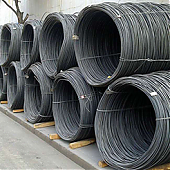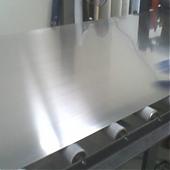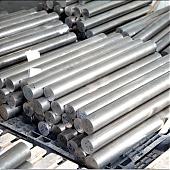Indonesia starts AD investigation on CR imports from 4 countries
According to a source familiar with the matter, attention is paid whether the Indonesian government will start investigation on the antidumping against import of cold rolled sheets/coils from 4 countries including Japan and Korea
The plural Indonesian rolling mills requested antidumping investigation on imported cold steel to the government and such charge seemed to be accepted by the government. However, after receipt of it, the government does not unveil its decision yet.
The Indonesian Ministry of Industry enacted the technical guideline against cold rolled steel sheets/coils mandatory to the Indonesian National Industrial Standard which became effective the same day. However, even if a specification is different from the SNI, steel items used for the automotive industry and its parts industry, and the electrical and electronic industry and its parts industry in accordance with the Japan Iron and Steel Federation Specifications are exempted.
Steel items to other specifications like a user's or manufacturer's specification are also exempted subject to technical approval of the Ministry of Industry. The Indonesian mills have insisted that a user will be protected from defective products out of the specifications by this mandatory treatment. This system seems to be one of trade barriers, and then, if such system is accepted, severe trade friction is believed not to be caused.
And also, the Japan-Indonesia public and private steel dialogue was held for the first time in Jakarta in February this year. At that meeting, any concerned matters causing trade friction were reported not to be taken up. Therefore, the antidumping movement of this time seems to be likely a surprise attack.
However, even if cold rolled sheets/coils are judged as an antidumping case, those items like loams (tin mill black plates) for a joint venture between Japan and Indonesia, and for automotive industry which the Indonesian mills have not produced will be certainly exempted.
Objective countries of the antidumping case seem to be Taiwan and China other than Japan and Korea. Especially, in case of China, 13% of value added tax is refundable on cold rolled sheets/coils to exporters. Consequently, export of cold steel from China is rapidly increasing. For this reason, cold steel price drops drastically in the overseas market, and then, there is a possibility that this situation leads to the movement of antidumping action in Indonesia.
Anyhow, in the Southeast Asia, trade dispute smells like the Malaysia's safeguard investigation. The Indonesian antidumping issue will be a series of such movements.
The plural Indonesian rolling mills requested antidumping investigation on imported cold steel to the government and such charge seemed to be accepted by the government. However, after receipt of it, the government does not unveil its decision yet.
The Indonesian Ministry of Industry enacted the technical guideline against cold rolled steel sheets/coils mandatory to the Indonesian National Industrial Standard which became effective the same day. However, even if a specification is different from the SNI, steel items used for the automotive industry and its parts industry, and the electrical and electronic industry and its parts industry in accordance with the Japan Iron and Steel Federation Specifications are exempted.
Steel items to other specifications like a user's or manufacturer's specification are also exempted subject to technical approval of the Ministry of Industry. The Indonesian mills have insisted that a user will be protected from defective products out of the specifications by this mandatory treatment. This system seems to be one of trade barriers, and then, if such system is accepted, severe trade friction is believed not to be caused.
And also, the Japan-Indonesia public and private steel dialogue was held for the first time in Jakarta in February this year. At that meeting, any concerned matters causing trade friction were reported not to be taken up. Therefore, the antidumping movement of this time seems to be likely a surprise attack.
However, even if cold rolled sheets/coils are judged as an antidumping case, those items like loams (tin mill black plates) for a joint venture between Japan and Indonesia, and for automotive industry which the Indonesian mills have not produced will be certainly exempted.
Objective countries of the antidumping case seem to be Taiwan and China other than Japan and Korea. Especially, in case of China, 13% of value added tax is refundable on cold rolled sheets/coils to exporters. Consequently, export of cold steel from China is rapidly increasing. For this reason, cold steel price drops drastically in the overseas market, and then, there is a possibility that this situation leads to the movement of antidumping action in Indonesia.
Anyhow, in the Southeast Asia, trade dispute smells like the Malaysia's safeguard investigation. The Indonesian antidumping issue will be a series of such movements.
Related Products

Factory Introduction
Cold-Rolled vs. Hot-Rolled Stainless Steel Sheets
Jaway Steel: Your Premier Partner for Premium Stainless Steel Products
Contact Us